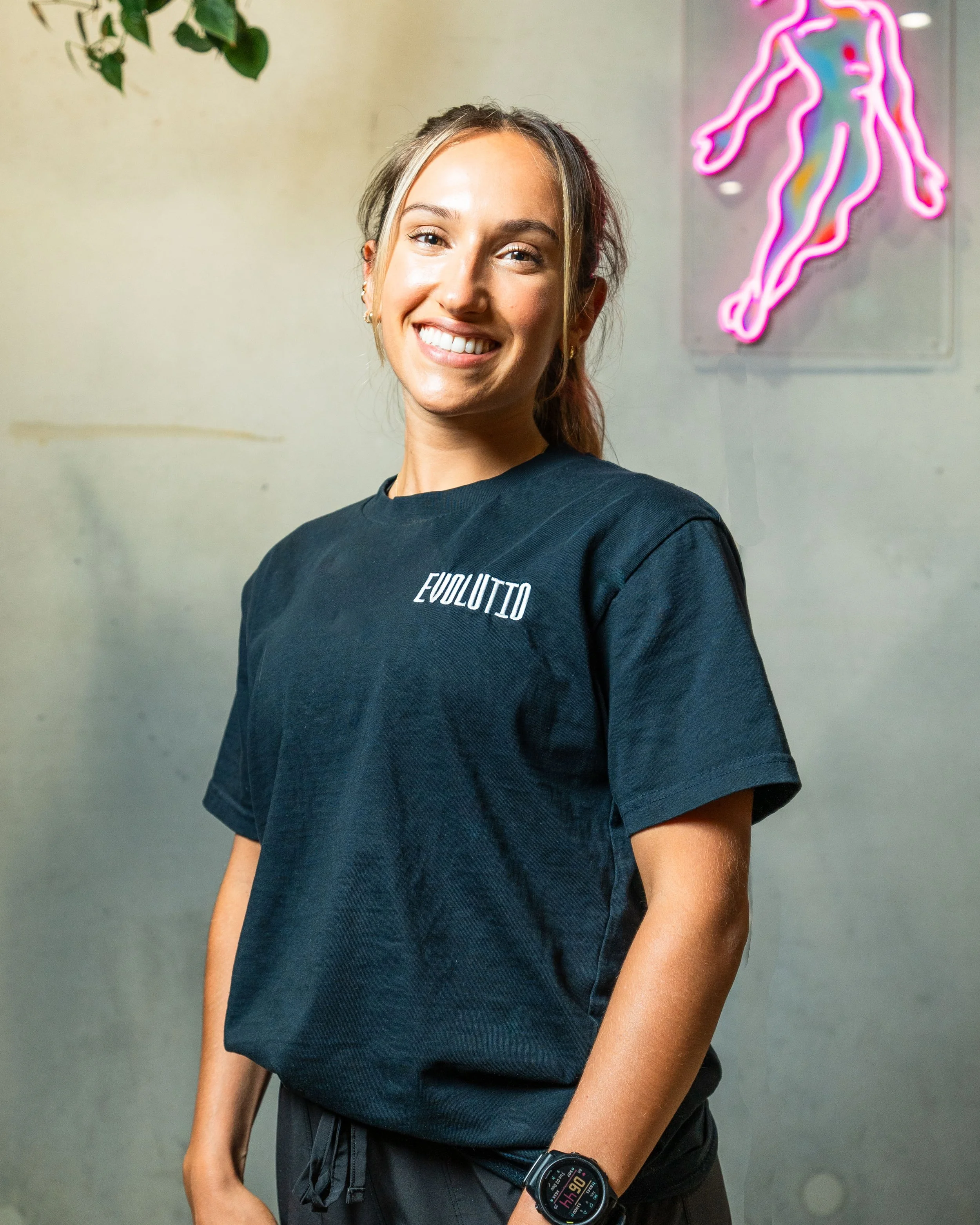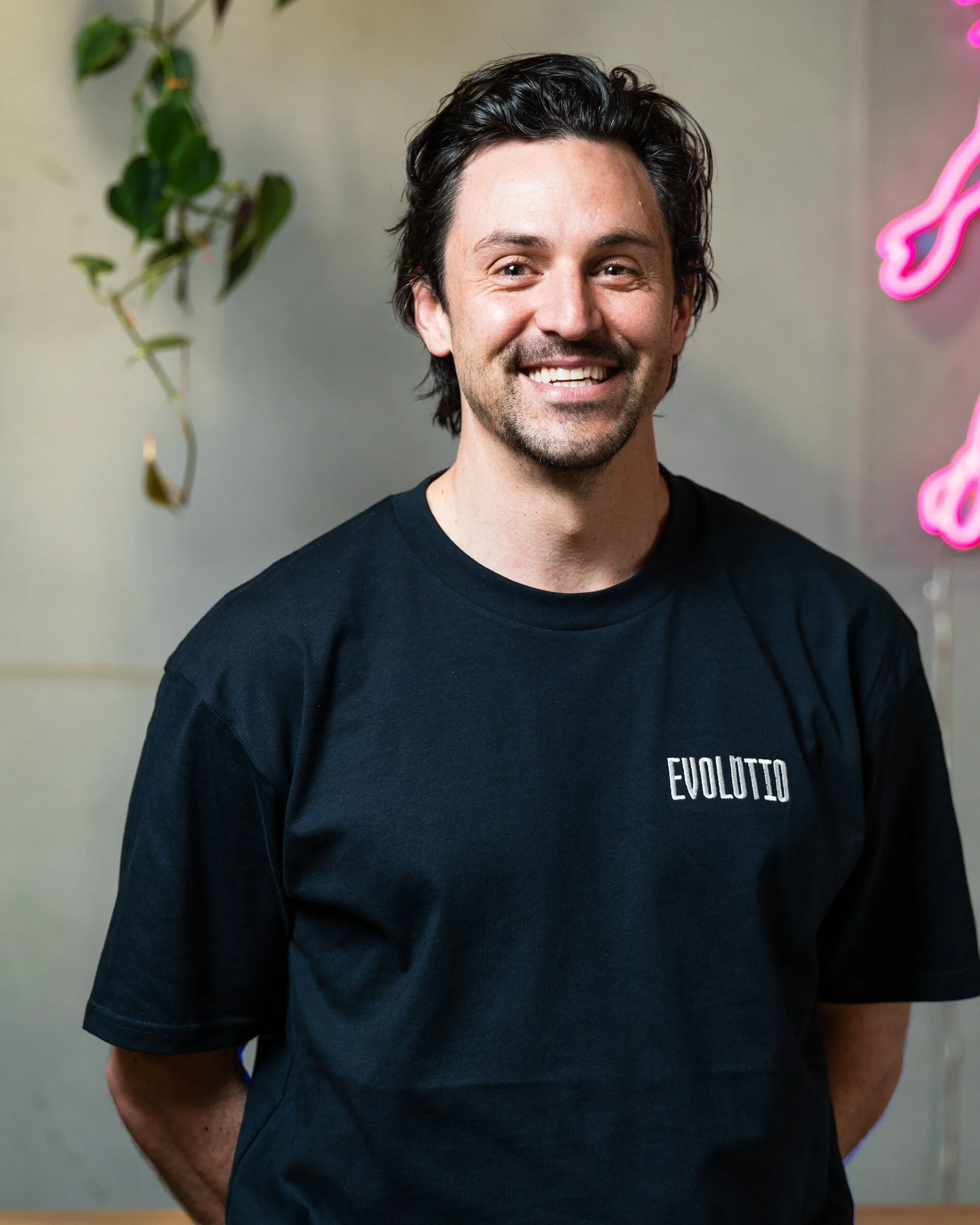Your First Visit:
Comprehensive Initial Assessment at Melbourne's Leading Sports Physiotherapy Practice
Preparing for Your Initial Physiotherapy Assessment at Evolutio Melbourne
We can’t wait to welcome you to your first visit to Evolutio Sports Physio Richmond, marking the beginning of your journey back to feeling yourself again. As one of Melbourne's most trusted sports physiotherapy clinics, we've refined our initial assessment process to ensure you receive the most comprehensive evaluation and immediate treatment relief possible.
This initial Physiotherapy assessment has been crafted and refined over the past 14 years of working with patients from all across the globe.
Your Initial Assessment - Phase 1 : History Taking and Interview
Your Initial Assessment - Phase 2 : Comprehensive Physical Exam
Your Initial Assessment - Phase 3 : Initial Treatment and Pain Relief
Diagnosis and Treatment Planning
Pre-Arrival: Setting You Up
Online Preparation (Complete 24-48 Hours Before)
Digital Registration Process: I'll need you to complete your patient registration through our secure online portal. This includes:
Personal and contact information
Comprehensive medical history questionnaire
Current symptoms and pain assessment scales
Insurance and billing information
Emergency contact details
Consent forms for treatment
Medical History Documentation: Gather relevant documentation that'll help me understand your condition better:
Recent medical reports or diagnostic imaging (X-rays, MRI, ultrasound)
Previous physiotherapy or treatment records you might have
Specialist referrals or recommendations
List of current medications and supplements your taking
Previous injury history and how those treatments went
Goal Setting Preparation: Think about your specific goals for treatment beforehand:
Return to specific sports or activities that matter to you
Pain reduction targets you're hoping for
Functional improvements your seeking
Timeline considerations for return to activity
Any upcoming events or competitions
Arrival and Welcome Process
The Evolutio Welcome Experience
Finding Our Richmond Clinic Located at 11/3 Bromham Place, Richmond VIC 3121 - our clinic is easily accessible from across Melbourne. This modern warehouse conversion provides a unique, welcoming environment that immediately sets us apart from those traditional medical facilities.
Parking and Accessibility
Free on-site parking that's available
Close to public transport (Richmond Station and multiple tram routes)
Bike storage facilities for cycling patients
Reception and Waiting Area Upon arrival, you'll be welcomed at our reception area featuring:
Our signature reclaimed wood table that we crafted in-house
Comfortable seating with ambient lighting
Carefully curated background music to promote relaxation
Fresh coffee and water that's available
Patient education materials and health resources
Your Comprehensive 45-Minute Initial Assessment
Phase 1: Patient Interview and History Taking
Detailed Symptom Discussion: I'll conduct an in-depth interview covering everything that's relevant to your situation:
Current Condition Analysis:
Onset and mechanism of injury - exactly how this happened
Symptom behaviour throughout the day (mornings worse? evenings?)
Activities that aggravate or ease symptoms your experiencing
Previous treatment attempts and how effective they were
Impact on sleep, work, and daily activities that matter to you
Athletic and Activity History:
Your sport or activity background - we want to know everything
Current training volume and intensity your doing
Recent changes in activity level or technique
Equipment used (shoes, bikes, whatever gear your using)
Performance goals and aspirations you have
Lifestyle Factors:
Work demands and ergonomics - what's your setup like?
Stress levels and sleep quality (these affect recovery more than people realise)
Nutrition and hydration habits your maintaining
Other health conditions or medications
What we find is that people often think some details aren't relevant, but everything connects. That nagging shoulder pain? Could be related to your new standing desk setup. That recurring calf strain? Might trace back to those new running shoes you bought three months ago.
This conversation usually takes about 15-20 minutes, and it's where I really get to understand not just your injury, but you as a person and athlete.
Phase 2: Comprehensive Physical Examination
Postural and Movement Analysis
Our evidence-based assessment includes everything your physiotherapist needs to understand what's happening with your body:
Static Assessment:
Postural alignment analysis - how your holding yourself
Joint positioning and symmetry between left and right sides
Muscle tone and visible abnormalities they can observe
Swelling or inflammation markers that might be present
Dynamic Movement Screening: Following protocols from the Functional Movement Screen and sport-specific assessments that are relevant to what you do:
Basic movement patterns (squat, lunge, step-up) - these tell them so much
Sport-specific movements relevant to your activity
Gait analysis for runners and walking patients
Upper limb movement patterns for overhead athletes
Specific Joint and Tissue Testing:
Range of motion measurements using precise techniques
Muscle strength testing - not just "strong" or "weak" but actual grades
Joint stability assessments to check how things are holding together
Neurological testing when it's indicated
Palpation of relevant anatomical structures (this is where their hands become diagnostic tools)
What's interesting is how much information your physiotherapist gathers just by watching you move. Sometimes the way you get up from a chair tells them more about your hip problem than any X-ray could. Your walking pattern might reveal why that knee keeps acting up.
This phase usually takes about 15-20 minutes, and by the end? They have a pretty clear picture of what's going on and where treatment needs to focus.
Phase 3: Initial Treatment and Pain Relief
Immediate Hands-On Treatment Unlike many clinics that only assess on the first visit, we provide immediate treatment including:
Manual Therapy Techniques:
Joint mobilisation for restricted movement
Soft tissue release for muscle tension
Trigger point therapy for pain relief
Gentle mobilisation to reduce stiffness
Pain Management Strategies:
Heat or ice application as appropriate
Taping or bracing for support
Positioning advice for symptom relief
Immediate activity modifications
Initial Exercise Prescription:
2-3 simple exercises you can start immediately
Proper technique demonstration
Dosage and frequency instructions
Safety precautions and warning signs
Diagnosis and Treatment Planning
Clinical Reasoning and Diagnosis
Evidence-Based Assessment Our physiotherapists use clinical reasoning that's based on:
Current research and best practice guidelines
Australian Physiotherapy Association standards that they follow
International sports medicine protocols
Years of clinical experience with similar conditions
Diagnostic Accuracy They provide:
Primary diagnosis when they're clinically certain
Differential diagnosis list when multiple conditions are possible
Recommendations for further imaging or medical consultation if it's needed
Clear explanation of findings in terms you'll actually understand
Collaborative Treatment Planning
Goal-Oriented Approach Together, you and your physiotherapist establish:
Short-term goals (1-2 weeks) that are achievable
Medium-term objectives (1-3 months) that make sense
Long-term outcomes (return to full activity) you're aiming for
Measurable markers of progress you can track
Realistic timelines based on your condition and goals
Treatment Frequency Recommendations Based on your specific condition, here's what typically works best:
Acute injuries: May require 2-3 sessions per week initially
Chronic conditions: Often 1-2 sessions per week works well
Post-surgical rehabilitation: Following surgeon's protocols exactly
Maintenance and prevention: Monthly or as-needed sessions
What's great about this approach is how it takes the guesswork out of recovery. No vague "come back when you feel better" - instead, you get a clear roadmap with specific milestones. Your physiotherapist will explain exactly why they're recommending certain frequencies and what they're expecting to achieve at each stage.
This collaborative planning usually takes about 5-10 minutes, but it sets up everything for success.
What to Bring to Your First Appointment
Essential Documentation
Medical Documents:
Private health insurance card/Phone App with Health Insurance
Any referrals from your GP or specialist that you have
Recent scan results or medical reports
WorkSafe or TAC claim numbers if they're applicable to your situation
Previous physiotherapy or treatment records
Medication Information:
Complete list of current medications (names and dosages you're taking)
Any supplements or vitamins you're taking
Known allergies or adverse reactions you've had
Recent medication changes that might be relevant
Appropriate Clothing and Equipment
Clothing Recommendations: For optimal assessment and treatment, here's what works best:
Lower body conditions: Shorts or leggings for easy access
Upper body issues: Tank top or t-shirt that can be easily removed
Back problems: Two-piece clothing for easy access to spine
Foot/ankle issues: Shorts/pants and athletic shoes
General rule: Comfortable, loose-fitting clothes you can move in easily
Footwear Considerations:
Bring the shoes you normally wear for sport/exercise
Athletic shoes for movement assessment
Multiple pairs if you have specific sport shoes (cycling, CrossFit, running, etc.)
Any orthotics or insoles you regularly use
Your physiotherapist needs to see how you move naturally, so wearing what you'd normally exercise in gives them the best picture. Don't worry about looking perfect - they've seen it all, and function matters way more than fashion here.
The documentation might seem like a lot, but it saves time during your appointment and helps your physiotherapist understand your history better.
Frequently Asked Questions - Your First Visit
Appointment Logistics
How long is the initial assessment?
Your first appointment is scheduled for 45 minutes, allowing comprehensive evaluation and immediate treatment. This follows Australian Physiotherapy Association guidelines for thorough initial assessments.
What if I'm running late for my appointment?
Please call us immediately at 9100 3798 or WhatsApp +61 430 436 531. We'll do our best to accommodate you, though appointments more than 15 minutes late may need rescheduling to ensure quality care for all patients.
Can I bring someone with me to my appointment?
Absolutely! You're welcome to bring a family member or friend for support, especially if you're feeling nervous about your first visit. Our reception area comfortably accommodates support persons.
Assessment and Treatment
Will the assessment be painful?
Our assessment is designed to be as comfortable as possible. While some testing may reproduce symptoms to help with diagnosis, we always work within your comfort limits and follow gentle assessment protocols recommended by Sports Medicine Australia.
What if you can't diagnose my condition immediately?
Some conditions require multiple sessions or additional testing for a definitive diagnosis. We'll be honest about our findings and may recommend imaging through your GP or specialist consultation if needed. We work closely with Melbourne's medical community for comprehensive care.
Will I need to undress for the examination?
Only the affected area needs to be exposed for proper assessment. We always maintain your modesty and comfort, and you can request a same-gender therapist if preferred. Our preparation guide provides specific clothing recommendations.
Treatment Planning
How many sessions will I need?
This varies greatly depending on your condition, health status, and goals. We'll provide an estimated treatment plan after your assessment and adjust as needed based on your progress. Typical ranges vary from 3-4 sessions for minor injuries to 12+ sessions for complex conditions or post-surgical rehabilitation.
Can I continue exercising while receiving treatment?
This depends on your specific condition. We'll provide clear guidelines about what activities to continue, modify, or temporarily avoid. For athletes, we often modify training rather than stopping completely - whether you're a runner, cyclist, or involved in team sports.
What if I don't see improvement after a few sessions?
We continuously monitor your progress and adjust treatment approaches as needed. If progress is slower than expected, we'll reassess and consider alternative strategies, additional imaging, or referrals to specialists within Melbourne's healthcare network.
Insurance and Costs
Do I need a referral from my doctor?
No referral is required for standard physiotherapy. However, referrals are needed for Medicare EPC plans, WorkSafe claims, and TAC claims. More details are available on our insurance and pricing page.
What if I don't have private health insurance?
Many of our patients are self-paying. We offer transparent pricing and can discuss payment options if cost is a concern. Check our detailed pricing information for current rates.
Can I claim this appointment on my taxes?
Medical expenses may be tax-deductible under certain circumstances. We provide detailed receipts for all services, but please consult your accountant for specific tax advice regarding medical expense deductions.




